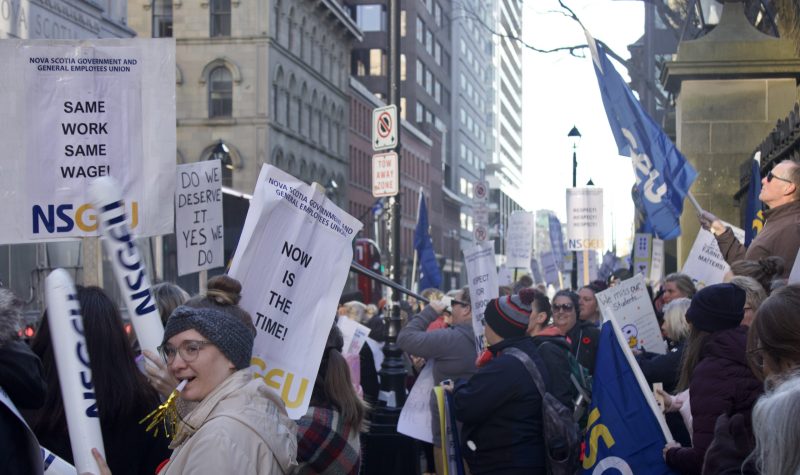It has been about two and a half weeks educational assistants and early childhood educators (ECEs) from Nova Scotia’s Annapolis Valley and South Shore have been on strike, halting classes for pre-primary children and students with disabilities.
On Tuesday, striking school support workers in Nova Scotia’s Annapolis Valley voted with 92.3 per cent accepting their recommended tentative agreement.
About 600 school support workers from the AVRCE walked off the job on Oct. 24, leaving roughly 250 children who required extra support in school unable to attend. Just one day later, about 150 workers from Nova Scotia’s south went on strike.
Today, Nova Scotia Government Employees Union (NSGEU) representing South Shore Regional Centre for Education have also reached a tentative agreement.
NSGEU president Sandra Mullen said the new agreement gives employees wage parity with workers doing the same job elsewhere in the province.
"As of today, we have a 98 per cent ratification vote in support of their new collective agreement, the strike is officially over and they return to school tomorrow," said NSGEU president Sandra Mullen.
Mullen said the negotiation was clear as both parties worked towards a common goal.
"It makes no sense that the folks who work in that program would be paid differently. So we were able to achieve a clear defined path to get to parity and it's an excellent deal," said Mullen.
The collective agreement extends to March 31, 2024.
"I just have to say that after years of the previous government and the inability to truly bargain, versus legislative wage packages, this has been a true type of bargaining where, where we were at the table, we had a process and they were certainly a pleasant change to work with," said Mullen.
The striking workers included educational assistants, early childhood educators, student support workers, outreach workers, parent navigators, library personnel, child and youth practitioners, Indigenous student advisors, literacy support workers and student supervisors.
The recent strike action comes after more than a year of bargaining between the NSGEU and the regional education centres.
Listen to the full interview below:


